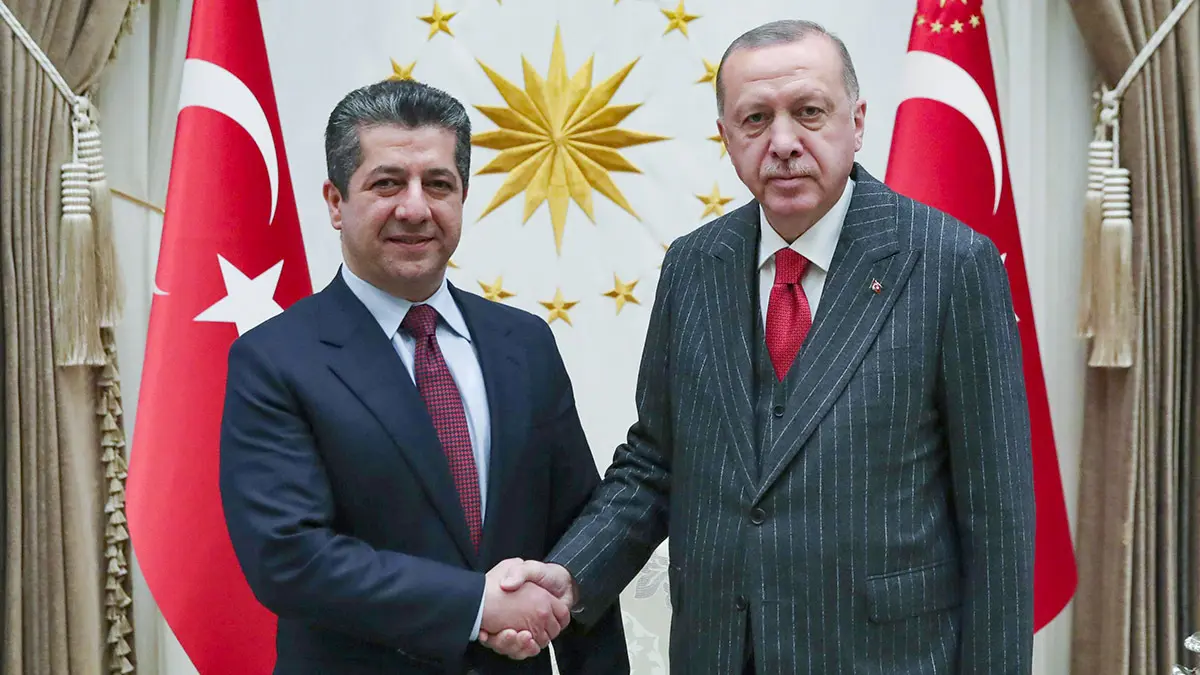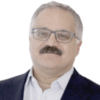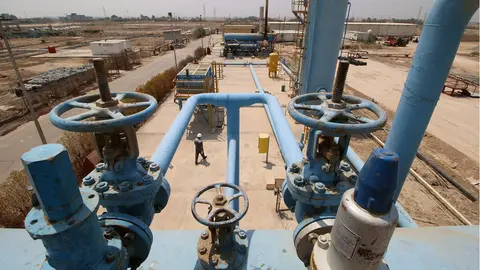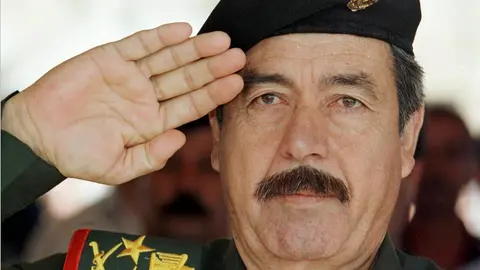The fascinating game of nations

The Kurdish factor is part of changing priorities as this factor gains greater importance and influence.
The Turks stand huddled around the current strategic scene watching the unfolding developments in the region, and waiting to see what outcome will eventually emerge.
The Turks have invested heavily in the region while making many mistakes. But despite their errors, they have been able to widen their footprint. Now they can just wait to see what their investment will yield.
The Turks are an important nation. Reflecting the key role they have played are their achievements over nearly one thousand years.
Over more than 1,400 years of Arab-Islamic history, the Turks can say that they have ruled the region for a millennium, perhaps with a lot of cruelty, but certainly with intelligence and astuteness, something that the Iranians cannot claim.
The latter have come in waves inflicting harm on the peoples of the region as they moved under sectarian banners breaking with the tradition of tolerance rooted in Islam.
The Turks, and here we do not mean only the Ottomans, came in different tribal incarnations, especially the Turkmen, the White Sheep and Black Sheep Sultanates, and finally the Rum Seljuk Sultanates, which constituted gateways to the establishment of the Ottoman Sultanate itself. From there, the Ottoman Empire was created.
Turkish President Recep Tayyip Erdogan is keen to present himself and his current government as the legitimate heir to this Ottoman legacy and the undisputed leadership of the Eastern Mediterranean, today. This is not an easy claim to make as it can unleash many old disputes in a world where new powers jockey for positions on the heels of the accelerating collapse of the post-Cold War world and the emergence of the post-Arab Spring realities.
This is a more important world than the sectarian world founded by Ayatollah Khomeini, who used to seek everything for free. He was never prepared to offer anything in return.
Khomeini, and after him Ayatollah Ali Khamenei, inherited the theory of the “guardian jurist,” which expects its followers to reach into their pockets and pay.
On his different track, Erdogan seeks a beneficial outcome from which everyone comes out a winner. To ensure such a result, the Turks have acted as financiers. During a first stage, they were backed by Muslim Brotherhood formations which were driven by the type of greed that led to their utter demise. However, the Turks later recovered from that stage and moved on into a more pragmatic mode with Doha acting as the patient financier who could afford to wait until the hour of reaping profits, and at times big profits, arrives.
Here are now the Qatari gas pipelines extending from the drawing board to tangible reality on land or under the sea, eventually reaching the shores of Iraq and its desert and then the Syrian desert and the eastern edge of the Mediterranean. There, they would cater to the LNG needs of Europe which wants liquified gas quickly and efficiently, bypassing the geographical hurdles that have exhausted the major gas producers. One needs only look at the gas pipelines stretching from Doha to Khor Abdullah in Iraq, then to Syria, then on to the European side to realise the scope of the routes and the magnitude of the risks involved, compared to the route that passes through the Strait of Hormuz and all the seas that surround the Arabian Gulf, the Gulf of Oman, the Arabian Sea, the Gulf of Aden, the Bab al-Mandab Strait, the Red Sea and the Gulf of Suez, before reaching a point overlooking the Mediterranean Sea.
This is a completely different world, with receding risks, especially since these are now shielded by a major state that is Turkey, which today stands to gain from the new Syria after Erdogan’s long-term bet on the collapse of Bashar al-Assad’s regime bore fruit.
This erected shield widens the area of possible benefits to the so-called Turkmen network for liquefied gas in the giant Caucasus Basin.
Regional expansion to the Kurds reinforces the sense that the Kurdish factor is part of changing priorities as it gains greater importance and influence.
There is no need to draw the ethnic or opportunistic comparisons like those that the Patriotic Union of Kurdistan continues to make, where chauvinistic and financial interests take priority over everything else.
One can see instead a network of solid regional relations nurtured by the Kurdistan Democratic Party (KDP), the legitimate heir to the historical Kurdish movement. The KDP sees itself as an integral part of the Iraqi state’s relationships within the region, in a way does not constitute a provocative separatist force.
The rising Kurds, including thoughtful leaders such as Masrour Barzani, the prime minister of the Kurdistan Regional Government (KRG), have begun to draw the limits for what they can achieve regionally. Most importantly, Barzani has asked himself: what kind of relations can be established with the two major powers, Turkey and Iran? He can do so while taking into consideration the atrophy of Iranian influence after the humiliating blows Tehran has suffered in the region.
There is no doubt that the KDP will understand that it is better off within a unified Arab Iraq than being snared by Khamenei’s destructive illusions which have has so far not only destroyed the power of Tehran’s allied militia groups but could lead Iran itself also to the path of self-destruction.
There might be poetic justice in Iran’s implosion as the clerical regime has left no one in the region unharmed, refusing to show the slightest degree of concern for the Arab world’s need to live in peace away from Iran’s gun-smoke trail.
Khamenei insists, without really paying attention to what he says himself, that the region must protect itself.
Virtually no one will disagree about that. The problem however is that the number-one enemy against which the region should protect itself is actually Iran itself.
One can even assert without undue exaggeration that Iran, as it is run today, is a threat to Iran itself.
As it causes endless bloodshed in the region, Iran does not feel the need to ask itself the most important question: what did the Arabs do to Iran in the modern era to deserve its unbridled hostility towards them? A simpler question: is Palestinian posturing worth all this destruction and how can that in any way vindicate Iran’s claims of success?
Sharaa’s Syria is shaping as a country ruled by Turkey while Hezbollah fighters no longer dare attack Lebanese army soldiers whom they used to mock and abuse not so long ago.
Even distant allies such as Algerian soldiers and separatist Polisario fighters have not been spared the fall out of recent developments. They are now confused about the fate that could befall them. They worry in particular about the harsh sentences they could receive when tried by war crime courts.
The Hamas issue is a different story. Nobody knows how and where it all started nor how it will end. The issue is so thorny that Erdogan and his new Syrian allies are clearly trying to eschew the issue altogether, focusing all their attention on their achievements on the ground in Syria, even though reconstruction needs are no less pressing in Gaza than in Syria. Perhaps the competition between the Turks and the Iranians has not yet reached its peak. But it is an ongoing contest where no one knows when the two will eventually clash. What makes the situation even more difficult to predict is that the Arab protagonists are yet to enter the fray, although the Israelis would like to drag them into the ring.
This would be important to the Israelis as it would draw US President Donald Trump’s attention and prompt the Qataris to become involved either directly or through Turkey. It would also compel the most important actors in the equation, the Saudis, to intervene, and even reshuffle the cards according to their perceived interests.
Redrawing the map of regional and international influence is not an easy task. No one wants to go beyond its self-assigned role nor that which as been presumably assigned to him by the United States and other major powers.
One cannot forget that what is happening now in the north of the Arabian Peninsula as well, in what has become known as the map of the Shia Crescent, in a rehearsal for the road-map being redrawn south of the region. When these maps are complete, major powers will begin to cut down their ties to the forces at play in Yemen and in the seas surrounding Yemen and the Horn of Africa. The fascination exerted by the game of nations is never-ending.
Haitham El Zobaidi is the Executive Editor of Al Arab Publishing House.



